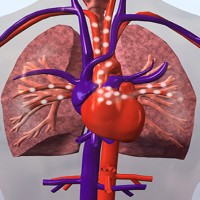
 Purestock/iStock/Thinkstock(LOS ANGELES) — Federal regulators are investigating a cardiac device after the death of a patient in Los Angeles.
Purestock/iStock/Thinkstock(LOS ANGELES) — Federal regulators are investigating a cardiac device after the death of a patient in Los Angeles.
Cedars-Sinai Hospital alerted the U.S. Food and Drug Administration this month about the device, called the SynCardia Freedom portable driver, after a patient with the device died, hospital officials said.
“The apparent failure of the Freedom Driver — a portable, external pump that powers an artificial heart — resulted in the death of a patient,” hospital officials told ABC News in an email.
Neither the FDA nor Cedars-Sinai disclosed when the patient died.
The Freedom portable driver pump is attached to the SynCardia Total Artificial Heart to help patients whose own hearts have stopped working effectively. The portability of the pump allows qualified patients to wait at home for a heart transplant. The longest time a patient successfully remained on the SynCardia Total Artificial Heart is 1,374 days before receiving a successful heart transplant, according to the SynCardia website.
After the death of the patient, hospital officials asked other patients to come into the hospital to either remove the device in exchange for another version or to be monitored in the intensive care unit, according to hospital officials. In total, five patients at Cedars-Sinai were on the device as a stopgap measure as they waited for a heart transplant. Three of the patients were switched to a hospital console device to help pump the blood and two remained on the Freedom Driver device, since they were not healthy enough to switch devices, according to Cedars-Sinai.
“Until there is guidance from the FDA or other regulatory agencies, Cedars-Sinai has stopped using the Freedom Driver with any new artificial heart patients,” a spokeswoman for the hospital told ABC News.
The FDA gave clarification for providers on Wednesday, acknowledging that the agency is studying the Freedom device system. According to the FDA, there have been reported instances of Freedom Driver “device malfunctions,” which have resulted after “sudden cessation” of the pump without “warning alarms or recognizable signs of impending malfunctions.”
Some of the devices were recalled in August 2015 by SynCardia after “a specific part of the Freedom Driver drive mechanism” was found to possibly fail, causing the device to stop pumping, according to the FDA. The company sent an “Urgent Medical Device Recall” for 29 devices in the U.S.
The FDA also issued its own recall for the device in September 2015.
“Patients do not receive any advanced warning that the device may fail. If it does fail, a red light located in the center of the driver, towards the top, will stay red and a loud continuous alarm will sound,” the FDA said in the recall notice. “However, if the Freedom Driver stops pumping, the patient will lose consciousness almost immediately, which means that the warning light and alarm may not be helpful. The patient will likely experience serious injury or death if not immediately switched to a backup driver by a caregiver.”
However, in today’s statement, the FDA wrote these recent malfunction reports “appear to be unrelated” to that recall.
In the same notice, the FDA looked at updated information from SynCardia regarding another device called the C2 Driver system, used to help pump blood through the artificial heart. The device had previously been associated with increased rates of mortality and adverse neurological effects in patients when compared to an older device. New findings showed that the device was still associated with increased risk, though the sample size was very small and results were not adjusted for any confounding factors and didn’t take into account therapies tried before the implantation of the device in question.
In a statement to Kaiser Health News last week, SynCardia CEO Michael Garippa said the patient who died after using the Freedom device had been “near death.”
“It is unfortunate, but that particular patient was on our device for over 500 days, and we extended the life of that patient, who was extremely ill and near death at the time of his artificial heart implant,” Garippa told Kaiser Health News.
SynCardia did not immediately respond to ABC News’ request for comment.
In light of these reported malfunctions, the FDA now recommends medical providers “consider mortality and neurological adverse event results and device malfunction reports” if they consider using the Freedom Driver or similar device like the C2 Driver system in patients. The FDA is also asking medical providers to promptly report any adverse events associated with these devices.
Copyright © 2016, ABC Radio. All rights reserved.














